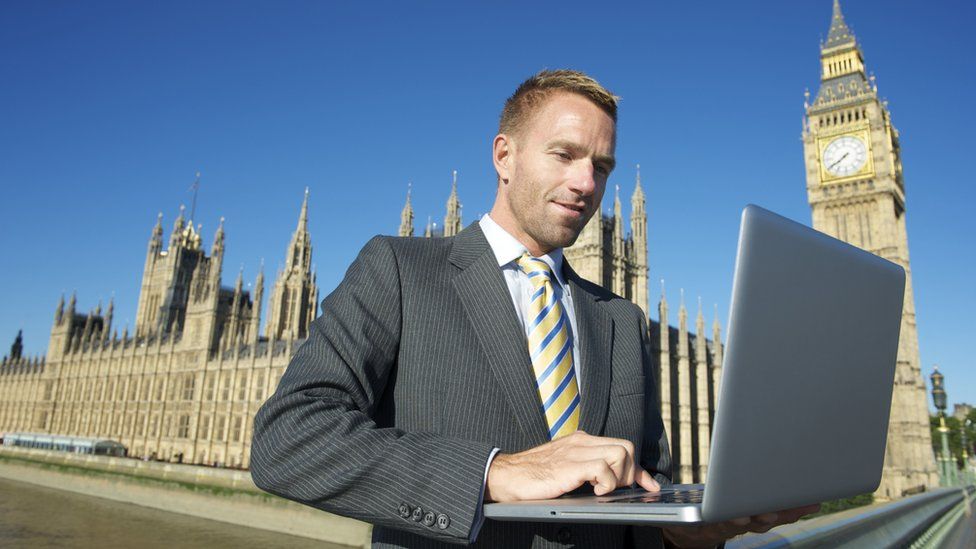Making government a bit more digital
- Published
- comments

Could your interactions with the government be, how can I put this, a little smoother?
Mine certainly could. I paid my self-assessment tax the other day - it was a clunky business, HMRC did not send me a reminder, and there wasn't even a thank-you afterwards. A car tax reminder did arrive this week - but in the post. An email or a text with a link to where I could pay would have been far better.
Well now the Government Digital Service thinks it has the answer. Later today it will unveil two new services, Notify and Pay, designed to make dealing with the government a little bit more like our relationships with online retailers.
Notify is a service which will allow departments across government to keep in touch with citizens using their services via email, text or even a letter. You might think they already did that - and some do - but there is a piecemeal approach. The idea is that Notify is a platform which any civil servant can plug into and use to improve the way a service communicates, without spending much money on doing that.
Gov.uk's other initiative is Pay, a system to enable government departments to receive payments or to make refunds. Again, at first sight you wonder why it's needed as the government seems perfectly capable of extracting money from us.
But the idea is both to make payments more efficient across all services and to make sure that, as new ways of paying enter the market, government can quickly offer them. So for instance, if one day ministers decided that Bitcoin was an acceptable form of payment, then all services using Gov.UK Pay would be able to adopt it without any fuss or expense.
Now, while this may be sold as a great benefit for anyone who has dealings with government, the main aim of these two initiatives is to save money. I had imagined that the Pay service would produce the bigger cut in costs, but actually it's Notify, scheduled to reduce spending by £600m over the next five years, compared with the £200m saving from more efficient payments.
That is because a face-to-face interaction with government is estimated to cost £8.62, while a phone call costs £2.83 and a web message just 15p. So keeping in touch with your customers via email or text rather than having them drop in or phone up is good business.
Government Digital Services (GDS), which is behind these developments, is the same team which brought all government websites together under the banner of Gov.UK, and won awards in the process. Its members are now almost messianic about their digital mission which they describe as "government as a platform".
But they also realise they have a job to do in explaining why the rest of Whitehall should sign up to this quest and why we the taxpayers should care. "It's not sexy, it's boring stuff done well," explained Pete Herlihy, who leads the team which has developed the Notify service.
The GDS offices, where the uniform is a distinctly un-civil service T-shirts and jeans, are full of young developers who are recent and perhaps temporary arrivals in government jobs. One senses there may be a cultural chasm between them and the career civil servants who are being told to heed their digital message.
Not everything has gone smoothly, with the farm payments fiasco a classic example of that cultural chasm in action. The GDS was criticised by the National Audit Office for failing to give enough support to Defra as it tried to introduce a "digital first" service for farmers.
The NAO report said "support was reported to be patchy and with limited continuity in personnel".
Another new GDS service, the identity assurance scheme Verify, was not ready for use by farmers so they had ended up using the existing methods - the telephone and face-to-face meetings.
There have also been some notable departures from GDS over recent months including their inspirational leader Mike Bracken. Despite that, the people I met when I went to find out about the Notify and Pay still seemed excited and motivated by their mission to inject some digital innovation into public services.
Reinventing government for the digital era is a daunting but vital task. Unlike Estonia, often seen as the leading digital government, we have a civil service with long traditions, wedded to processes which still - sort of - work. The challenge for the revolutionaries at the Government Digital Service is to usher Whitehall down the digital road as rapidly as possible without too many accidents along the way.